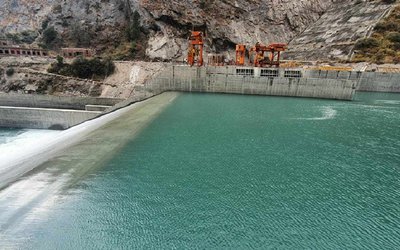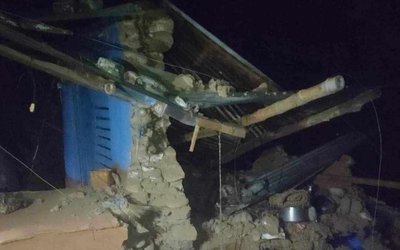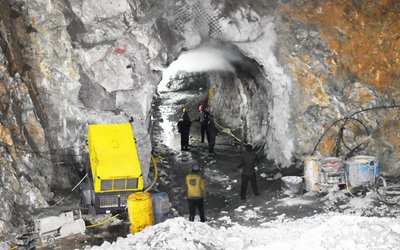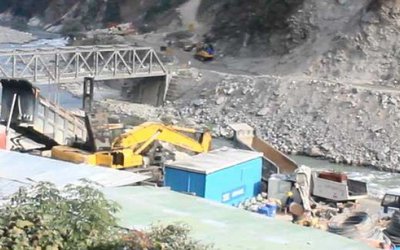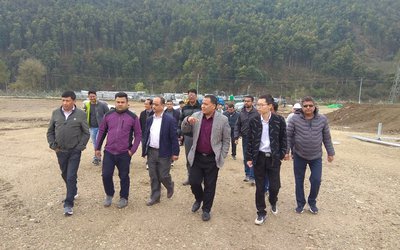The fundamental issues of water governance in Nepal and South Asia are not a blind focus on development (i.e. civil engineering construction) but a shift to assuring broader rights and responsibilities. Rights are meaningless unless there are ways through which they can be heard, enforced and respected. Many of the groups most affected by water management decisions have little ability to make their voices heard in forums such as the courts, government departments and various other platforms. The proper distribution of water, voice authority and expertise are critical in water governance.
What are the factors to determine proper water governance? Are economic factors the key criteria or should factors such as cultural integrity, religious traditions, social ethics etc., be given more weight in determining proper water governance? The economic factor recognizes valuing and pricing natural resources and the environment through the market mechanism. At present, even in the developed countries, there is no proper valuation of nature’s, absolutely-essential-to-life, gift such as water. It is treated as a “free commodity”. For instance, the use of steam engine which is regarded as the basis of the Industrial Revolution in the UK depended on the vast availability of cheap coal. It was cheap partly because of the failure to provide an intrinsic value for coal itself and account for the hidden costs to the poor workers' health or the environment, as we know today. However, ethical, social and political factors are equally, if not more, important in taking decisions that impact areas of life beyond the economy and market. The proper amalgamation of these two approaches (economic and social) will make water governance more comprehensive, practical and impactful.
Take climate change, which is predicted to have a severe impact on our day-to-day lives. Although common citizens are not feeling the direct impact right now, the harsh reality is that its inexorable consequences are defining the undercurrent of our lives. This is especially true in the sector of water resources where the negative impact is perceptible in a Himalayan country like Nepal. At the Fifth South Asian Conference on Integrated Water Resource Management (IWRM) in the Himalayan Region held in Kathmandu from 6-8 December 2018, Kristof Duwaerts of Hans Siedel Stiftung (HSS), a German political research foundation that also studies climate change, stated, “Community impacted by glaciers are more likely to be impacted by climate change”. At the same program, David Molden of International Centre for Integrated Mountain Development (ICIMOD), a regional learning and knowledge sharing centre of the Hindu Kush Himalayas, declared, “the mountains are critical in water discussions”. Hence, urgent action is needed in tackling climate change especially in regards to water resources. An international analysis of water security led by the Asian Development Bank (ADB) shows that South Asia was lowest overall in the Water Security Index in 2014 from the Asian Pacific Region. Nepal is positioned 43rd out of 48 Asian and Pacific nations and 4th among 6 South Asian nations in the Water Security Index (WSI).
Scarcity of clean drinking water in the whole South Asian region is the result of abuse and wastage of water due to the general mismanagement of this natural resource sanctioned by present styles of governance. Half a century of construction-led water development has failed to address the basic sources of water-based suffering of the people of South Asia. Growing population, deforestation, overgrazing, conventional developmental paradigm and unsustainable agronomy all contribute to the water scarcity that, today, plagues the whole of South Asia. Infrastructure planning is led by strategies of short-term gain by political parties who are hungry for power backed by business-minded organizations or individuals who have little or no interest in the long-term impact on the ecology or society itself. It can, thus, be said that the present scarcity of water in the South Asian region stems from the paucity of good governance.
Recently, a study regarding the scarcity of clean drinking water in Kathmandu found how a water transfer project from a different basin (Melamchi) would be able to solve the water crisis in the Kathmandu Valley. Kathmandu Upatyaka Khanepani Limited (KUKL) is a government agency authorized to distribute clean drinking water to the valley. But KUKL’s existing infrastructure has had a limited capacity to supply only 19% of the water that is demanded in its service areas during the dry season and 31% during the wet season. KUKL covers 45% of the total valley area and serves 71% of the total valley population with the rest of the demand met through private groundwater pumping wells, water tankers from private vendors, dug wells or water bottle industries. Melamchi Water Supply Project (MWSP) was expected to have its first phase completed by September 2018, however the construction has been delayed partly due to the Earthquake and the Indian blockade of 2015; its second phase is to be completed by the end of 2023. 170 Million Liters per Day (MLD) was to be supplied through in the first phase and an additional 340 MLD in the second phase. Yet, the demand in Kathmandu valley was already at 370 MLD in 2015!
This shows that while the MWSP can help in relieving extreme water stress in the valley, it will not fully solve it. The study also states that after the distribution of water by MWSP, it is highly likely that the recent distribution networks and strategies may lead to inequality in the service areas of KUKL. Now this is where water governance is needed to address those inequalities. Proper research and cost evaluation should be done to identify those who are the beneficiaries and those who are the ones who can’t afford to pay such extreme water costs. Similarly, directives should be sent to the concerned municipal authorities to figure out how the expansion of existing distribution can serve an additional 1.21 million people living outside the service area of KUKL. Other measures such as water harvesting and recycling, conservation measures etc. should be pushed through policy and stakeholder partnerships to generate extra water, as well as robust public discourse. Such discussions should be organized regularly with the general public to determine their water-related issues in the neighborhoods. Bringing in diverse voices, including women and the marginalized, and responding to them would be an essential element of good water governance that would then be able to provide better sustainable development rather than a narrow focus on new constructions.
Therefore, water governance as a broader concept, which includes various planning and policy measures, equal distribution of water resources, empowerment of local water users to the regulation of large and well financed water companies, has to deal with the more targeted question of how collective actions can occur at different scales. Good governance of key environmental resources, such as water, depends not only on better scientific knowledge, but also on a fairer and inclusive political process which allows all people to engage in the debate of the long term effects of different approaches to resource management.

Pratik Poudel
Poudel is a Research Associate, Nepal Water Conservation Foundation for Academic Research, Chundevi, Kathmandu
- Why Upstream And Downstream Linkage In The River System Can’t Be Ignored?
- Feb 19, 2021
- Is The Lingering Of the Budhigandaki Hydropower Project The Sign Of Indo -Chinese Confrontation?
- Dec 18, 2020
- How Can The Problems Of Koshi Region Be Addressed Through A Nexus Perspective?
- Nov 21, 2020
- Addressing Water Security In The South Asian Region Through Nexus Governance
- Sep 08, 2020
- Excessive Use Of Pesticides Increases Health Risk
- Aug 09, 2020

